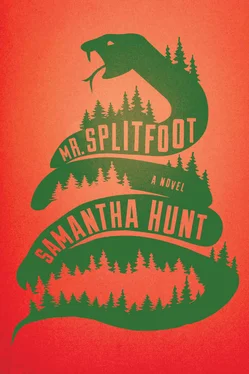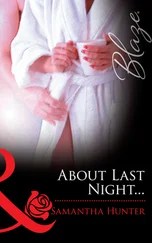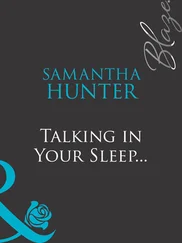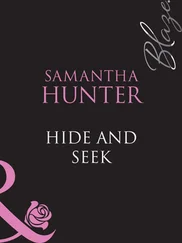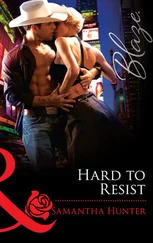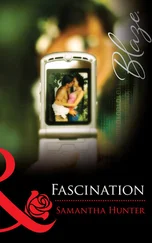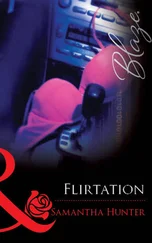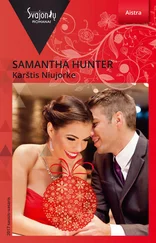“Meow! Meow!”
Ruth tries to escape down the hallway when it is over, but the Mother stops her. “Hi.”
“Hi.”
“How’ve you been?”
“What are you doing here?”
“I sell Mary Kay with the woman who lives here. She invited me.”
“Oh.”
“Ruth,” she says, and grabs Ruth’s hands, choking on a gurgle rising from her chest. “Please.” Some sort of flood.
“What?” Ruth directs her into a bathroom that smells of damp towels. Maybe the Mother wants to apologize for not taking care of them.
The Mother calms her voice. She breathes in and out through her nose like an actress. “I need you to talk to him for me.”
“Arthur?”
“No.”
“Nat?”
“No. My son.”
“You have a son?”
“Or daughter. I don’t know.” The Mother studies the tiling. Ruth sits on the rim of an enormous tub. The Mother kneels knee bones to tile. She lifts her hands to Ruth’s thighs, like she’s a beggar. “Please.”
“How come you never told anyone you have a kid?”
The Mother claws Ruth’s skin through the purple gown. “I had a miscarriage.” The Mother grips. “That’s why I need you to help me. No one’s helping me.” The Mother’s thick foundation makes her look like a zombie. There are tear streaks through the face pancake, riverbeds revealing red skin below.
“There’s nothing I can do.” Ruth’s dry, getting drier.
The Mother drops a cheek to Ruth’s legs. She squeezes, claws. Her mouth is wide open with no sounds coming out. Ruth sees her scalp. The brown and silver, wires on a bomb. Ruth imagines a story she could tell, about how the child was reincarnated into a pony on a farm where they help war veterans. But she doesn’t do it. The Mother doesn’t deserve it. Ruth keeps her mouth closed. All these parents who want their children. A freaking miscarriage. Who cares? She didn’t even know the kid. The Mother smells of oil. With her hands on either side of the Mother’s face, Ruth prepares to toss her skull off her lap like a head of turned lettuce. “It’s fake,” Ruth says finally. “I make it up.”
The Mother holds still in Ruth’s lap for one moment.
“It’s a lie,” Ruth says again. “I’ll give you your money back.”
The Mother’s face peels into disgust. “You make it up?”
“The dead are dead are dead. They don’t talk to me.”
“You’re a liar?” The Mother sharpens.
“Yes.”
The Mother wipes eyeliner expertly, using the edge of one finger as swab. “That’s got nothing to do with my child. You’re a cheat. That doesn’t mean there’s not a world greater than this. Just means you’ll never see that world. You’re not the gatekeeper, Ruth. You’re not even invited.”
Ruth nods. “I know.”
The Mother has a miserly thin mouth. She picks dried spit from her lip like a boll of cotton. “Good luck. You’ve got nothing else.” She arranges her clothing in the vanity’s mirror, looking extraordinarily human, plain, and broken. The Mother sleepwalks from the room. Her grease and grief linger.
Ruth spends a few minutes counting the tiles in front of her eyes, each one lined up next to its neighbor, each identical. A freaking miscarriage. Why did Ruth’s mother never look for her? Where did her sister go?
She swings her shod feet into the tub. Ruth closes the bath’s drain and turns the hot water tap on high. Beside the tub there’s a cylinder of Comet bleach scrub. Ruth shakes a generous quantity of the bluish powder into the water.
It’s time to find her sister El, to find their mother. Ruth needs to get out of here too. She climbs into the tub, into the Comet, as if it is her space pod. She rings in the new year, making herself clean and ready for a new life. The water scalds and purple dye leaks from her dress, brightly colored as any suicide.

HIGHWAYS ARE BAD PLACES TO HIDE,but I didn’t know we were hiding until Ruth started running. “Who is he?” Like a kind of torture, I keep asking her the same question. Ruth readjusts her headphones. I would think a person who doesn’t know what’s she’s running from can’t really be on the run, but that’s not true. Here I am.
A cop car coasts to a stop a few feet behind us. We keep walking. They turn on their lights so we stop. They sit in their car. We wait for them to get out, but the cops don’t get out, so I tell Ruth, “Fuck it. Let’s keep walking.” Then they hit us with the siren, which, that close, is a bolt of electricity from below, spine-clearing. It exits through my brain. They use their bullhorn. “Hold your position.”
When I worked in an office, it was the same thing, people using phrases that made no sense. “Action item,” they’d say, because our job was so dull we used mysterious phrases to make it seem more exciting, as if we were spies dealing with top-secret, pass-coded information. Only there was no way to break the code because none of the phrases meant anything: Bring it to the table. Deliverables. Go live. Leverage. With that said. Moving forward. Offline. Branded brain dump.
“What’d they say?” I ask Ruth. We lean against the guardrail and wait.
The cops finally climb out of their patrol car.
“Your car break down?” he asks me, as if Ruth’s become invisible. That’s fucked up but that’s what happens to women. We grow up into ghosts. No one wants to screw Ruth anymore so she’s invisible.
“Yeah. Her car.”
“Whose?”
“My aunt Ruth’s.”
“ID, please.”
“You want to see our driver’s licenses?”
“Correct.”
“But we’re not driving.”
“You’re trespassing. There’s no walking allowed on the highway.”
I look at them blankly. “Walking is against the law?”
“Yes, ma’am.”
The cops give us a lift to the next exit, another town where the houses have lights in each window. Homesickness raises questions like, Why don’t I live in a house? Why am I punishing El? I don’t know the answers, but walking can untangle knots, spread things out, so at least I can see the strands: walking, mothering.
We pass Walmart, Walgreens, Starbucks. Everything is new in this town, even the trash barrels. A man mowing his lawn watches us as if he’s on patrol. The town playground has forts, tunnels, platforms, and a padded surface. A father and daughter are heading home for supper. The sun is sinking behind the trees. Three teenagers, a girl and two boys, are on the swings, pivoting on pointed toes. Each of them wears headphones. Each of their faces is illuminated by the glow of a smartphone.
El told me that she worries about kids today, about me. She said we’re screwed because we’ve never known life without the Internet. And then she told me a story about the first time she heard Linda Thompson sing, “I hand you my ball and chain.” “You know Linda Thompson?” she asked me. “Of course,” I said, because I know everything now, that’s my job, to know one drop of shallow information about every single thing. El told me how she was driving home from work years ago, before the Internet, and how the radio station broadcast that Linda Thompson song and, like a tractor beam, it took her over, prickled her skin, lifted her up. Her body felt every signal the Earth was issuing, every twitch of spring coming in the winter air was palpable on her forearms because that song’s so good and it spoke to her. And Thompson’s voice. El pulled over just to listen. She waited through three more songs, frozen with a shred of paper she’d picked up off the floor, the receipt from an oil change. She waited with a pen in hand, like her life was depending on hearing that fast moment when the DJ would rattle off the name of the lady who sang that song. Hear it now or lose that beauty forever. The DJ said the name. El wrote it down. She drove twenty miles to a record store, ordered a CD the guy working there had never heard of, waited two weeks for that guy to call, drove twenty minutes back to the store, and left with Richard and Linda Thompson’s CD in her hands, holding it above her head like some Jesus cross umbrella, a relic of protection against death because she had found it and it had found her, and the chances of that encounter were so very slim.
Читать дальше
